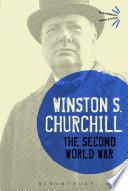Quotes from book
The Second World War

The Second World War is a history of the period from the end of the First World War to July 1945, written by Winston Churchill. Churchill labelled the "moral of the work" as follows: "In War: Resolution, In Defeat: Defiance, In Victory: Magnanimity, In Peace: Goodwill".Churchill wrote the book, with a team of assistants, using both his own notes and privileged access to official documents while still working as a politician; the text was vetted by the Cabinet Secretary. Churchill was largely fair in his treatment, but wrote the history from his personal point of view. He was unable to reveal all the facts, as some, such as the use of Ultra electronic intelligence, had to remain secret. From a historical point of view the book is therefore an incomplete memoir by a leading participant in the direction of the war.

Churchill ended his December 8, 1941 letter to the Japanese Ambassador, declaring that a state of war now existed between the United Kingdom and Japan, with the courtly flourish "I have the honour to be, with high consideration, Sir, Your obedient servant".
The Second World War, Volume III : The Grand Alliance (1950) Chapter 32 (Pearl Harbor).
Post-war years (1945–1955)

“The hour has come; kill the Hun.”
How Churchill said he would end his speech if Germany invaded Britain (John Colville's diary entry for January 25, 1941). In The Churchill War Papers : 1941 (1993), ed. Gilbert, W.W. Norton, pp. 132–133 ISBN 0393019594
The Second World War (1939–1945)

“I hate nobody except Hitler — and that is professional.”
Churchill to John Colville during WWII, quoted by Colville in his book The Churchillians (1981) ISBN 0297779095
The Second World War (1939–1945)

“The only thing that ever really frightened me during the war was the U-boat peril.”
The Second World War, Volume II : Their Finest Hour (1949) Chapter XXX (Ocean Peril). p. 529.
Post-war years (1945–1955)